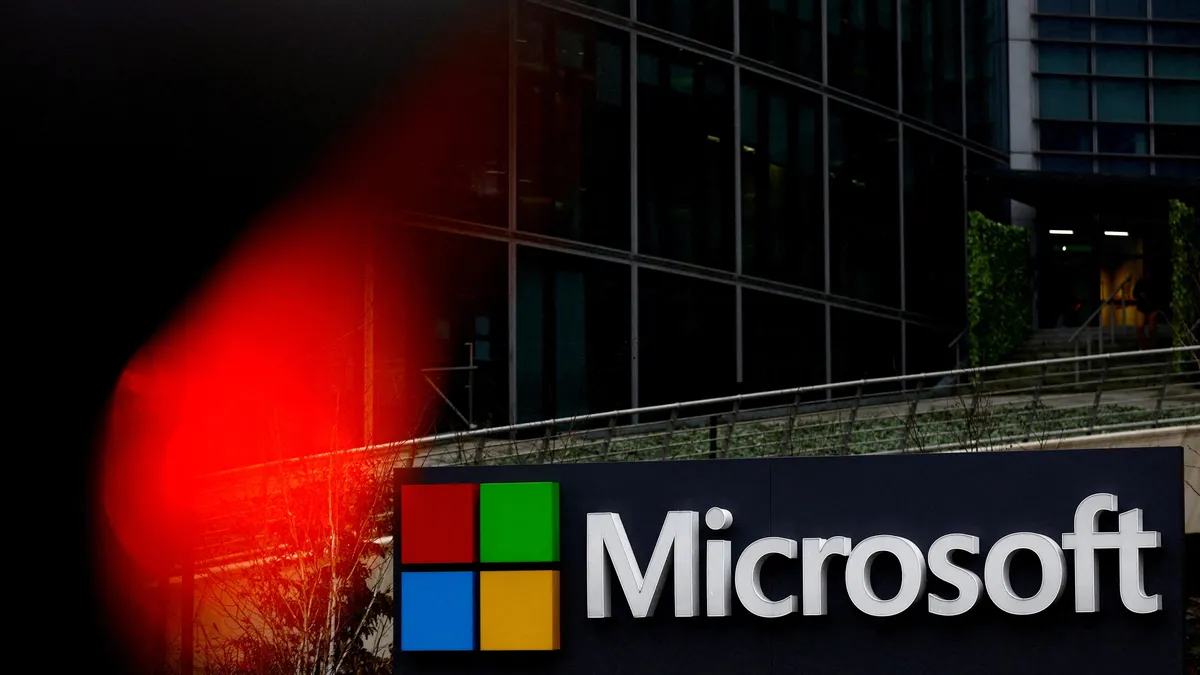Introduction:
In a bid to challenge Google’s dominance, Microsoft incorporated generative AI into its Bing search engine. However, despite these efforts, Bing has struggled to make significant inroads into Google’s market share, according to the latest data from StatCounter. This article explores the reasons behind Bing’s inability to compete and delves into Microsoft’s strategic missteps in AI deployment.
 Current Market Landscape:
Current Market Landscape:
As of October 2023, Google commands a formidable 88.1% market share in the United States, a slight increase from 86.75% in 2022. In contrast, Bing’s market share declined from 7.4% in 2022 to 6.92% in 2023. Worldwide, Google’s search dominance is even more pronounced at 91.55%, leaving Bing with a modest 3.11%. The struggle extends to mobile searches, where Google holds a commanding 94.93%, while Bing ranks fourth with a mere 0.53%.
Microsoft’s Strategic Misstep:
Microsoft’s decision to integrate AI into Bing faced challenges, with experts pointing to a critical misstep in deployment. Greg Sterling, co-founder of Near Media, highlighted that Bing with ChatGPT was initially limited to the Edge browser, hindering widespread adoption. Microsoft’s attempt to drive Edge downloads may have deterred users, suggesting that making AI available across browsers from the outset could have been a more effective approach.
Challenges in Altering User Behavior:
Mark N. Vena, president and principal analyst at SmartTech Research, emphasized that despite advancements in AI algorithms, Bing struggles to compete with Google’s entrenched dominance. Users perceive Google’s search results as more accurate and relevant, creating a formidable challenge for Microsoft in attracting and retaining a significant user base. The inertia of user habits, coupled with Google’s established reputation, poses a substantial hurdle for Bing’s AI enhancements to drive a notable shift in market share.
 The Power of Entrenched Vendors:
The Power of Entrenched Vendors:
Rob Enderle, president and principal analyst at the Enderle Group, noted that Google’s status as an entrenched vendor makes it challenging for competitors to displace. Convincing users to switch requires not only demonstrating a superior tool but also convincing them that their current tool is insufficient. Enderle emphasized the need for substantial marketing efforts and highlighted the difficulty of introducing a new AI platform, especially one that requires user training.
Antitrust Trials and Potential Impact:
In a landscape marked by fierce competition, the battle for search engine supremacy has extended beyond technological innovations to legal arenas. Google, the undisputed leader, is currently grappling with two high-profile antitrust trials that could potentially reshape its dominant position in the search market.
San Francisco Trial: Epic Games vs. Google
In the bustling tech hub of San Francisco, an ongoing trial between Epic Games, the creative force behind the immensely popular Fortnite game, and Google is underway. The focus of this legal battle revolves around alleged antitrust issues related to in-game payment processing on the Google Play platform. Epic Games contends that Google has illicitly established a monopoly on Android apps, primarily to bolster its profits through substantial commissions ranging from 15% to 30% on in-app purchases.
This trial delves into the intricate dynamics of app distribution and the influence wielded by Google in shaping user experiences within the Android ecosystem. If the court finds merit in Epic Games’ claims and decides to curtail Google’s control over default search relationships, it could potentially open the door for increased competition. However, industry experts express skepticism about the immediate impact on Google’s search share, as user habits and preferences may prove resistant to such alterations.
 Washington, D.C. Trial: U.S. Department of Justice vs. Google
Washington, D.C. Trial: U.S. Department of Justice vs. Google
Simultaneously, on the grand stage of Washington, D.C., the U.S. Department of Justice (DOJ) is engaged in a legal skirmish with Google, alleging a spectrum of antitrust violations. The DOJ’s case against Google asserts that the tech giant:
- Exclusivity Agreements: Google employs exclusionary agreements and practices to dominate the search engine market, such as mandating its search engine as the default on Android devices.
- Unlawful Advantage: Google leverages its search dominance to provide its own services with an unlawful advantage over competitors, creating an uneven playing field in the digital landscape.
- Competition Suppression: Google allegedly stifles competition in advertising technology markets through exclusionary conduct, limiting alternatives and consolidating its influence.
- Consumer Harm: The DOJ contends that Google’s practices lead to less choice, lower quality, and higher prices for online services, ultimately harming consumers.
This trial scrutinizes Google’s overarching influence on the digital ecosystem, exploring the intricate interplay between search dominance, advertising prowess, and user choice. If the court determines that remedies are necessary to rectify monopolistic practices, it could potentially usher in a new era of competition, with implications for Google’s long-standing search supremacy.
Potential Impact on Google’s Search Supremacy: A Complex Equation
While legal scholars and industry analysts closely follow these antitrust trials, the question looms large: can legal actions significantly impact Google’s unrivaled search dominance? According to Greg Sterling, co-founder of Near Media, the outcomes may not substantially alter Google’s usage patterns on the consumer side. Users may persist in using Google even if default search relationships are severed.
However, the advertising side holds the key to more impactful changes. If the court imposes remedies that significantly impact Google’s revenue stream, akin to the substantial fines levied on Microsoft by the EU, it could prompt swift adjustments in Google’s practices. The potential for a transformative impact hinges on the nature and severity of the remedies enforced by the court.
Conclusion:
While Microsoft’s integration of AI into Bing aimed to disrupt Google’s dominance, the journey has been fraught with challenges. The need to break user habits, coupled with strategic missteps in deployment, has hindered Bing’s ability to gain significant market share. As legal battles unfold, the industry watches closely to see if the court system can provide the catalyst needed to shift the search engine landscape.
Read more: